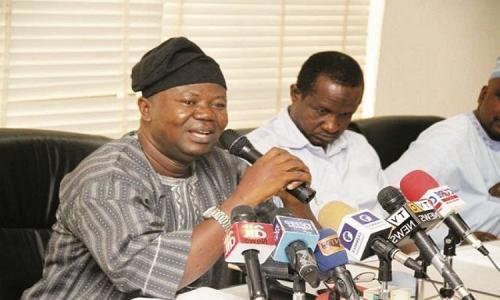The Academic Staff Union of Universities (ASUU) says there is no going back on its demand that the Federal Government must shelve the Integrated Payroll Personnel Information System (IPPIS).
The union, which is on a seven month-long strike, warned it may linger if government failed to accede to its demand.
ASUU President, Prof. Biodun Ogunyemi issued the warning in a statement made available to the media on Sunday.
The union had embarked a nationwide strike on March 23 to press on its demands which include revitalisation, Earned Academic Allowances (EAA), renegotiation of the 2009 Agreement, Visitation Panels, among others.
Ogunyemi appealed to Nigerians to bear with the union, saying it was fighting their battle.
“Our Union is struggling to ensure that the children of the poor, who cannot afford the prohibitive cost paid in private universities or do not have opportunities to study outside Nigeria, get quality education which is not priced beyond their reach.
“This will only happen when government adequately funds public universities and addresses the rot and decay in them.
“ASUU has shifted positions in some respects.
“For instance, our members have reduced their demand of one tranche N220bn of the outstanding revitalisation fund by 50 per cent.
“The Union has also agreed that N30bn out of the so far verified arrears of N40bn of the earned academic allowances (EAA) be paid to our members while the balance of N10bn could be spread over the next two tranches.
“We were equally making steady progress on other issues,” he said.
The ASUU president, therefore, noted that what had stalled meaningful dialogue was government’s insistence that payment of the withheld salaries and other entitlements of its members would only be effected through the Integrated Payroll and Personnel Information System (IPPIS).
He added that government was punishing university teachers because they rejected IPPIS, which was imposed on the universities against the provisions of the law on autonomy and universal practices.
He however, said that ASUU was at the final stage of the integrity test of the Transparency and Accountability Solution (UTAS) with the National Information Technology Development Agency (NITDA).
UTAS was developed locally by ASUU members, unlike IPPIS which was engineered by the World Bank.
Ogunyemi said UTAS had been presented to the Minister of Education and senior management staff, the President and leadership of Senate, and the Office of the Accountant-General where NITDA and Office of the National Security Adviser and other MDAs were fully represented.
“Last Thursday, 5th November, 2020, the National Universities Commission (NUC) facilitated the presentation of UTAS to Vice-Chancellors and Bursars of federal universities.
“All questions raised at the four levels of presentation of UTAS were satisfactorily answered.
“With the full cooperation of the concerned agencies, the final test with NITDA could be completed as a matter of days and UTAS adopted in place of IPPIS in our universities.
“ASUU disagrees with government on the use of IPPIS during the so-called transition period.
“In practical terms, there is no transition period if government is sincere,”Ogunyemi said.
The ASUU president said it would take a longer period to capture more than three-quarters of its members who were not yet on IPPIS than the time required to run through the last stage of the integrity test for UTAS.
He added that the claim by government that the platform used in paying its members’ salaries before the imposition of IPPIS had been dismantled was not true.
He noted that some of its members who had not enrolled in IPPIS were paid part of their withheld salaries last week.
“But, in furtherance of the attack on ASUU, the Accountant-General of the Federation (AGF) has illegally seized all the deducted union check-off dues of our members in the last nine months.
“So, government should release all what is due ASUU members and the union without the conditionality of IPPIS.
“That would enable us conclude on the outstanding five demands including revitalisation, EAA, renegotiation of the 2009 Agreement, inauguration of the Visitation Panels.
“Others are proliferation of state universities and governance issues in them of the Union to pave way for the quick resolution of the lingering crisis.
“It is government that is prolonging the matter, not ASUU,” he added.

